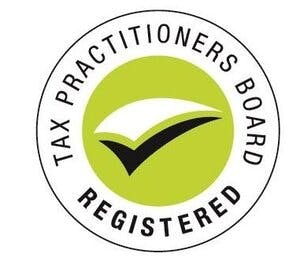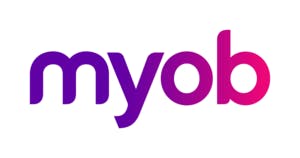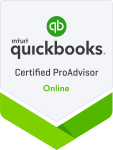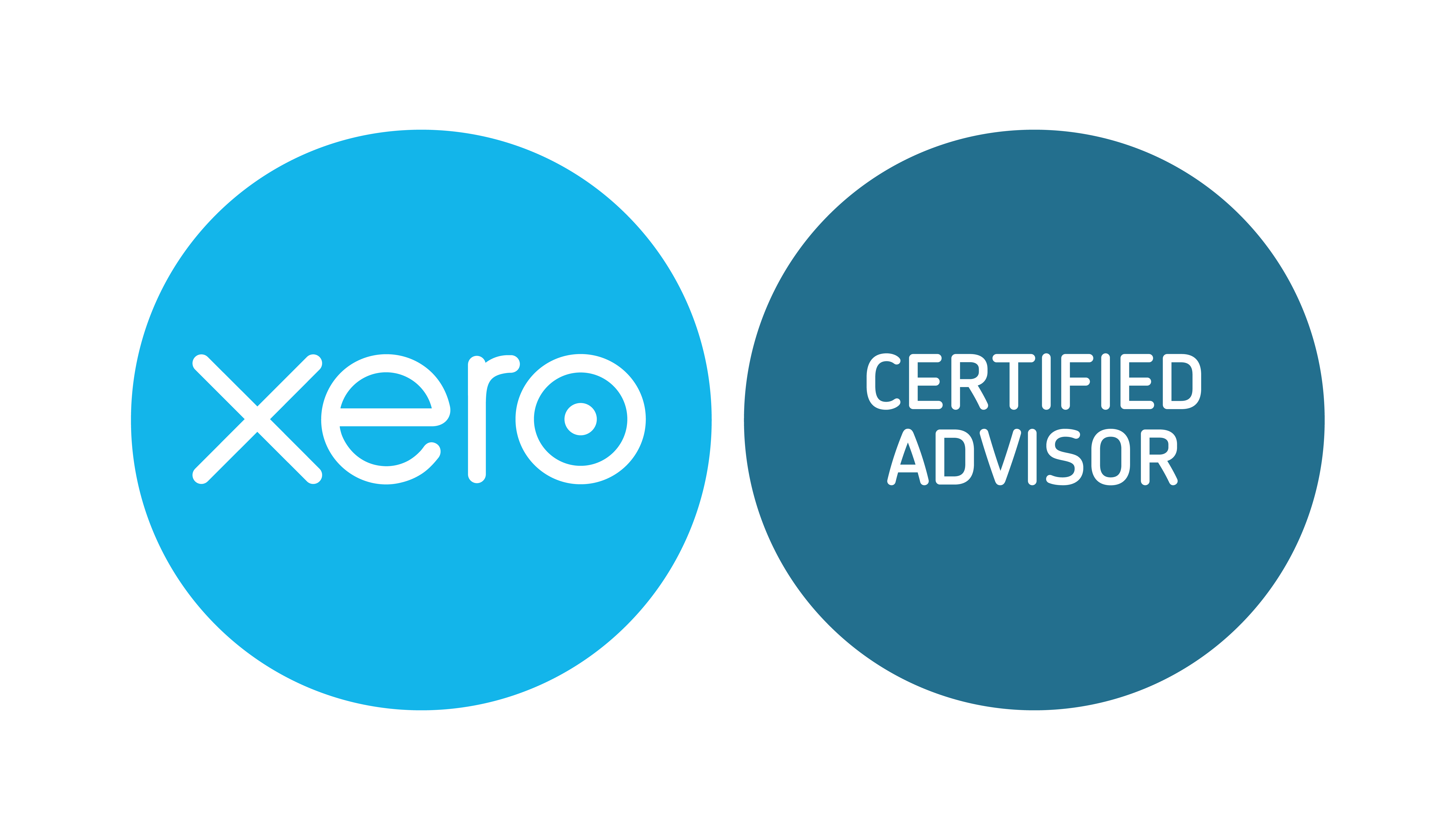Know Your Obligations as an Employer

By Travis Bacon
December 12, 2021
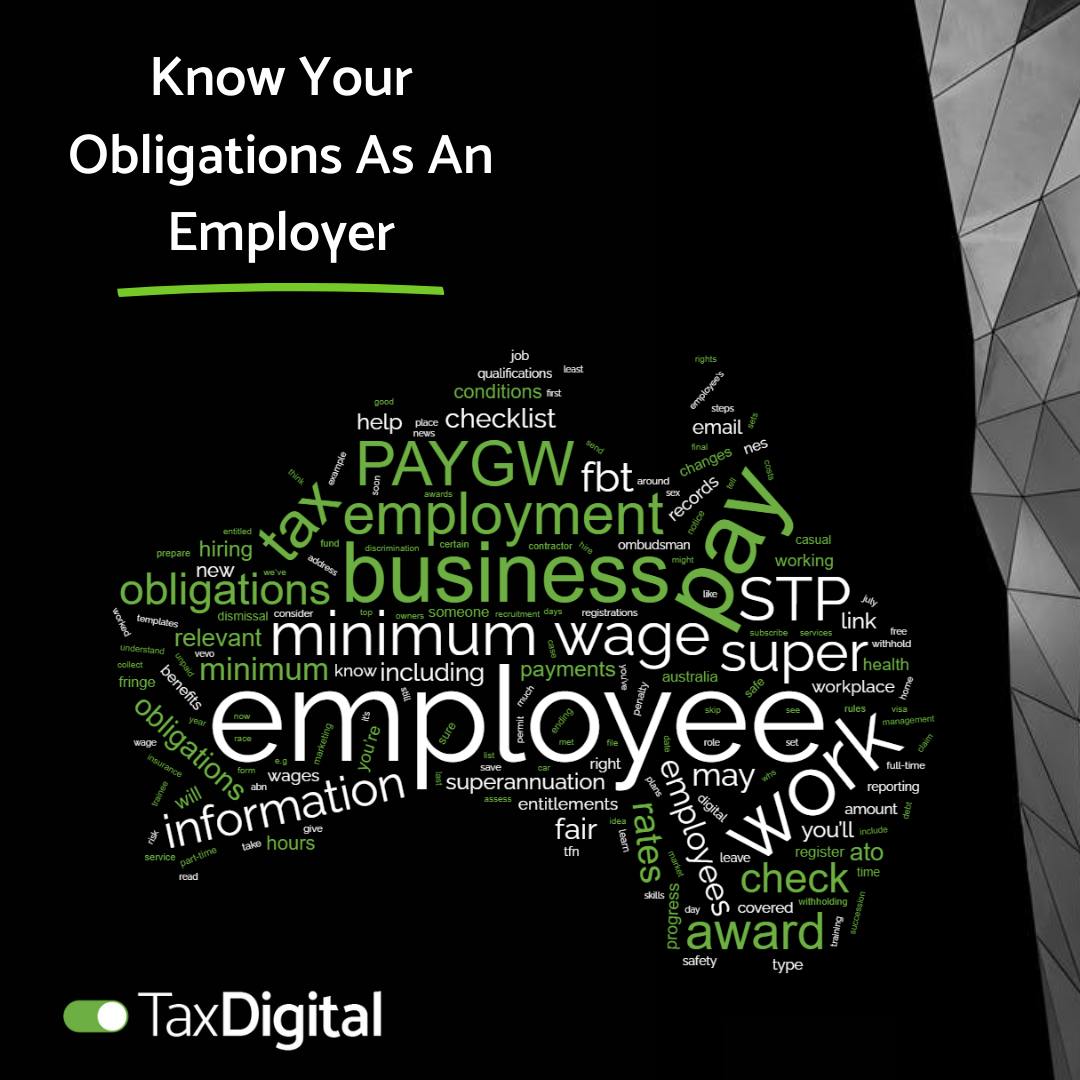
Whether you're hiring your first employee to help with your small business or you're a well-seasoned employer, it is essential to know your obligations. Many issues ranging from tax and minimum pay to employee codes of conduct that an employer needs to be familiar with. Let's take a closer look at some of the issues an employer needs to consider:
Employee tax
As an employer, you are responsible for withholding tax from your employee's wage and paying it to the Australian Taxation Office (ATO). In recent years, the government has developed the Single Touch Payroll (STP) system, which allows for timely reporting of employee wages and the tax withheld.
As an employer, you are required to:
- Register for PAYG Withholding (PAYGW) with the ATO.
- Obtain relevant employee information (withholding thresholds, super details, etc.).
- Report wages and withholding amounts via STP and Business Activity Statements (BASs).
- Pay the PAYG withheld to the ATO on time.
- Lodge an annual finalisation report via STP before 14 July each year.
You can find more information directly from the ATO on PAYG Withholding.
Superannuation
As an employer, you must make Superannuation Guarantee (SG) contributions for your eligible employees. Currently, the minimum employer contribution amount is 10% of ordinary times earnings. Note that superannuation is not payable on overtime but is payable on bonuses and commissions.
Eligible employees are:
- Between the ages of 18 and 69, and are paid more than $450 (before tax) per month in wages.
- Employees under 18 must work at least 30 hours per week to be eligible for SG contributions.
- Employed full-time, part-time, casual or on contract. (Contractors are eligible for superannuation if they are paid wholly or principally for their labour skills.)
Employers must make contributions by the 28th day following the end of the quarter. If you don't pay your SG contributions by the due date, no tax deduction will be allowed, penalties do apply, and a director can be personally liable. Note that these penalties will accrue until you lodge SG Charge statements with the ATO. Therefore, TaxDigital recommends dealing with any unpaid SG contributions as soon as possible to avoid any build-up of penalties.
In cases where an employee does not provide you with their choice of a superannuation fund, you can obtain their current information via the ATO's business portal. There are no excuses for not paying an employees SG contributions by the due date.
Minimum wages
The Fair Work Commission dictates the minimum amount an employee can be paid. These amounts are reviewed each year on 1 July. When hiring a new employee, it is essential to decide on the person's employment status (full-time, part-time or casual). You can find the minimum pay rates, penalties and allowances that apply to an employee on the Fair Work website.
Payslips
An employer must issue an employee a payslip within one working day of payday. A payslip is required to contain:
- the employer's name
- the employer's Australian Business Number (ABN), if any
- the employee's name
- the date of payment
- the pay period beginning and end dates (e.g. 23/8/21 to 29/8/21)
- the gross and net amount of payment
- the superannuation contributions
- any loadings, allowances, bonuses, commissions, penalty rates, or other separately identifiable entitlement paid.
We recommend using accounting software with inbuilt payroll functionality to deal with payslips and STP reporting obligations. Our pick is Xero!
Employment contracts
Employment contracts are designed to protect not only your employee but you as a business owner. A good employment contract will cover off on conditions you must provide to your employee and also set outs your expectations for your employee.
The Australian Government has developed an employment contract tool that will prepare a complying employment contract.
Leave
An employee is entitled to take leave for many reasons, including going on holiday, because they are sick or a family member is sick, they are on maternity, are in a family and domestic violence situation, to name a few.
All employees except casual employees are entitled to paid leave each year. Typically an employee can take four weeks annual leave for every 12 months of annual service. In the case of part-time employees, the amount is pro-rated for a full-time equivalent role. Note that you cannot unreasonably refuse an employee's request for leave as an employer. In addition, full-time and part-time employees can take ten days of personal leave each year.
It is also essential to recognise that an employee may be eligible for flexible working arrangements.
We recommend you familiarise yourself with employee leave entitlements details on the Fair Work website.
Documents to provide to your employee
Each new employee is to be provided with the Fair Work Information Statement before they start working for you. The statement includes information regarding an employee's minimum employment conditions. Note that there are two different information statements (one for casual employees and one for all other employees).
As an employer, you are responsible for employee safety while at work and are required to have various workplace health and safety (WHS) measures in place. You must provide your employee with your specific WHS information and emergency procedures.
Other employer obligations
This is by no means an exhaustive list of an employer's obligations. There are several additional items to consider:
- Workplace health and safety
- Workers compensation insurance
- Various HR and employment policies and documents
- Record-keeping requirements, up to 7 years
- Discrimination
- Hours of work and rostering
- Payroll tax
- Training staff members
- Trade unions and memberships
- Managing underperformance
- Employee termination
- Etc. (the list goes on)
How can TaxDigital help?
At TaxDigital, we assist businesses in meeting their payroll obligations and ensuring they are compliant. We do this by offering our comprehensive bookkeeping services, including employee management. TaxDigital can also act as your intermediary when dealing with the ATO and Single Touch Payroll obligations, so you don't have to.
If you would like some personalised advice or assistance, feel free to reach out to us on 0407 438 849 or contact@taxdigital.com.au.
This is general advice only and does not take into account your financial circumstances, needs and objectives. Before making any decision based on this document, you should assess your own circumstances or seek personalised tax advice from us at TaxDigital. Information is current at the date of issue and may change.
Recent publications
Get the latest industry and tax information from our small business blog.



